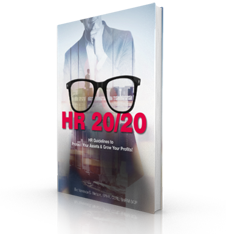Let’s be honest—staying compliant in today’s workplace isn’t just about keeping up.It’s about protecting your people, preserving your peace, and leading with purpose. And 2025? It’s bringing some big shifts that every employer needs to see coming.
So, take a deep breath. Pour your coffee. And let’s walk through the Top 5 Employment Laws to Watch in 2025—together.
1. AI in Hiring: It’s Not the Future – It’s Now
The age of AI is here, and the rules are catching up. States like Colorado, Illinois, and New York are rolling out laws that regulate how employers use artificial intelligence in hiring decisions.
That means:
If you’re using AI to screen résumés or schedule interviews, You’ll need bias audits, clear disclosures, and documentation to prove fairness.
HR Tip: Before you click “automate,” make sure you’re not inviting a compliance violation. Get ahead by reviewing your tools and processes now.
2. Paid Sick Leave & Family Leave Are Expanding
In Michigan and from New York to California, states are expanding paid leave laws—covering everything from sick days to caregiving and safe time. In 2025, several new mandates are kicking in, including additional paid sick hours and broader eligibility.
This isn’t just red tape—it’s about dignity. It’s about giving people time to heal, care, and breathe without fear of losing their job.
HR Tip: Update your handbook and train your managers. If your policy hasn’t changed since 2022, it’s probably outdated.
3. Worker Classification is Under the Microscope
Are your independent contractors really independent? The federal government is taking a much closer look in 2025, with updated guidance and stronger enforcement of misclassification violations.
And let me tell you—one misclassified worker can cost you thousands in back pay, taxes, and penalties.
HR Tip: Review your contractor agreements and use the IRS 20-Factor Test. When in doubt, ask for help. (And yes—we can help!)
Email [email protected] for your free Independent Contractor vs. Employee/IRS-20 Factor Test ebook.
4. Pay Transparency is Gaining Momentum
Salary ranges in job postings. Pay data reporting. Documented wage decisions. It’s all happening—right now. Over a dozen states are making wage transparency the law, and it’s transforming how organizations attract and retain talent.
Why? Because when people know the range, they know their worth.
HR Tip: Start documenting your compensation strategy—even if you’re not in a regulated state yet. You’ll be ahead of the curve.
Bottom line: These laws aren’t just legal updates—they’re leadership opportunities. They’re invitations to do better, to lead with fairness, and to protect what matters most—your people.
Need help navigating these changes?
Contact Expert Human Resources to stay compliant and confidently lead your workforce into 2025 at: Contact Us




